Top 10 Most Promising Startups in South Africa in 2022

In this article, we’ll talk about the Top 10 Most Promising Startups in South Africa in 2022. A startup is a company or project started by an entrepreneur who wants to find, build, and test a business model that can grow. “Entrepreneurship” refers to all new businesses, including self-employment and businesses that don’t plan to register. “Startups,” on the other hand, are new businesses that plan to grow big enough to be run by more than one person. At first, startups face a lot of uncertainty and have a high rate of failure, but some go on to be successful and influential.
Most startups start with a founder (solo-founder) or co-founders who have an idea for how to solve a problem. The startup’s founder will start market validation by interviewing people about issues, interviewing people about solutions, and building a minimum viable product (MVP), also known as a prototype, to develop and test their business models.
Some estimates say that getting a business off the ground can take three years or more, so the effort is needed to keep it going. The long-term step is tough because there are a lot of failures, and no one knows what will happen. When you have a business plan, it tells you what to do and how to plan and reach your goals. Most of the time, these plans show how your business will work for the first 3 to 5 years.
Design science is often linked to the models behind startups that present themselves as ventures. Design science uses a coherent set of normative ideas and propositions called “design principles” to design and build the backbone of a company. For example, “affordable loss” is one of the first design rules.
Startup actions: Heuristics and biases
Because they don’t have a lot of information, don’t know what will happen, and need to make decisions quickly, startup founders use a lot of heuristics and show biases in their actions. When we make decisions, biases and heuristics are tools in our mental toolboxes. They help us make decisions as quickly as possible when we don’t know what to do, but sometimes they are wrong.
Entrepreneurs often have too much faith in their businesses and their ability to change things (case of the illusion of control). Entrepreneurs tend to think they have more control over what happens, and they don’t give much thought to luck. Here are some of the most critical ways that entrepreneurs make bad decisions when they want to start a new business.
Overconfidence is when you feel more sure about something than you are.
The illusion of control: putting too much weight on how much skills, not luck, help performance. The law of small numbers says that you can conclude a more prominent group from a small sample.
Availability bias is when you judge how likely something is based on how easy it is to develop examples.
Escalation of commitment: sticking too long with projects or plans that aren’t working.
Startups use several action principles to gather evidence as quickly as possible. This helps them avoid the harmful effects of decision biases like overconfidence, escalation of commitment, and the illusion of control.
Mentoring
When doing their businesses, many entrepreneurs ask for advice from mentors. Mentors guide founders and teach them how to be entrepreneurs. They may also help new entrepreneurs feel more confident in their abilities. Mentoring helps entrepreneurs learn how to keep their assets, like their status and identity, and improve their real-world skills.
Lean startup is a clear set of rules for creating and designing startups with few resources and a lot of uncertainty so that entrepreneurs can build their businesses more quickly and for less money. It is based on the idea that entrepreneurs can test their implicit theories about how their business works by making them explicit. The purpose of the empirical test is to prove or disprove these assumptions and get a better understanding of the business model of the new ventures.
As a result, the new experiences are created in a build–measure–learn loop, which means that the new experiences are created over and over again. So, a lean startup is a set of rules for learning how to be an entrepreneur and designing a business model. More specifically, it is a set of design principles meant to help people learn by doing things repeatedly, even when they don’t know what will happen. Most of the time, a lean startup is based on a few lean principles, such as:
- Find a problem that needs to be solved, then come up with a solution.
- Use early adopters to test the market.
- Test over and over with smaller, quicker steps.
- Build a function, see how customers react to it, and then prove or disprove the idea.
- Using facts to decide when to “pivot” and change the course of your plan, speed up, learn, and concentrate as much as possible
- Verifying the market
- Before offering a customer-focused product or service, it’s essential to ensure the market needs it. This will help you avoid business ideas that won’t sell well.
- Market validation can be done in several ways, such as through surveys, cold calls, email responses, word of mouth, or sample research.
Design thinking is a way to find out what customers want in an exciting way. Design thinking and customer development can be biased because they don’t remove the risk of bias. The same tendencies will show up in the sources of information, the type of information sought, and the way that information is interpreted. People are less likely to be affected by biases like overconfidence, the hindsight bias, and anchoring if they are told to “consider the opposite” of the choice they are about to make (Larrick, 2004; Mussweiler, Strack, & Pfeiffer, 2000).
Making decisions when things aren’t clear
Many decisions in startups are made in the dark, so being agile and flexible is one of the most important things. Founders can build options into startups to be flexible and change quickly in the future.
Uncertainty can be different for different people and parts of the same person (he feels more uncertain than she does). A study found that when entrepreneurs feel more insecure, they see more opportunities (within-person difference), but entrepreneurs who feel more unsure than others don’t see more options than others do (no between-person difference)
Let’s talk about the Top 10 Most Promising Startups in South Africa in 2022
In recent years, many South African startups have been starting up and doing well. This is because more venture capital firms and investors are in the country. South Africa is often called the “jewel of Africa” because it has the largest economy and one of the best infrastructure networks on the continent. With more than 58 million people, South Africa has enough people to make a great startup ecosystem. As a result, many South African entrepreneurs are given a chance to create top startups that can grow into international stars.
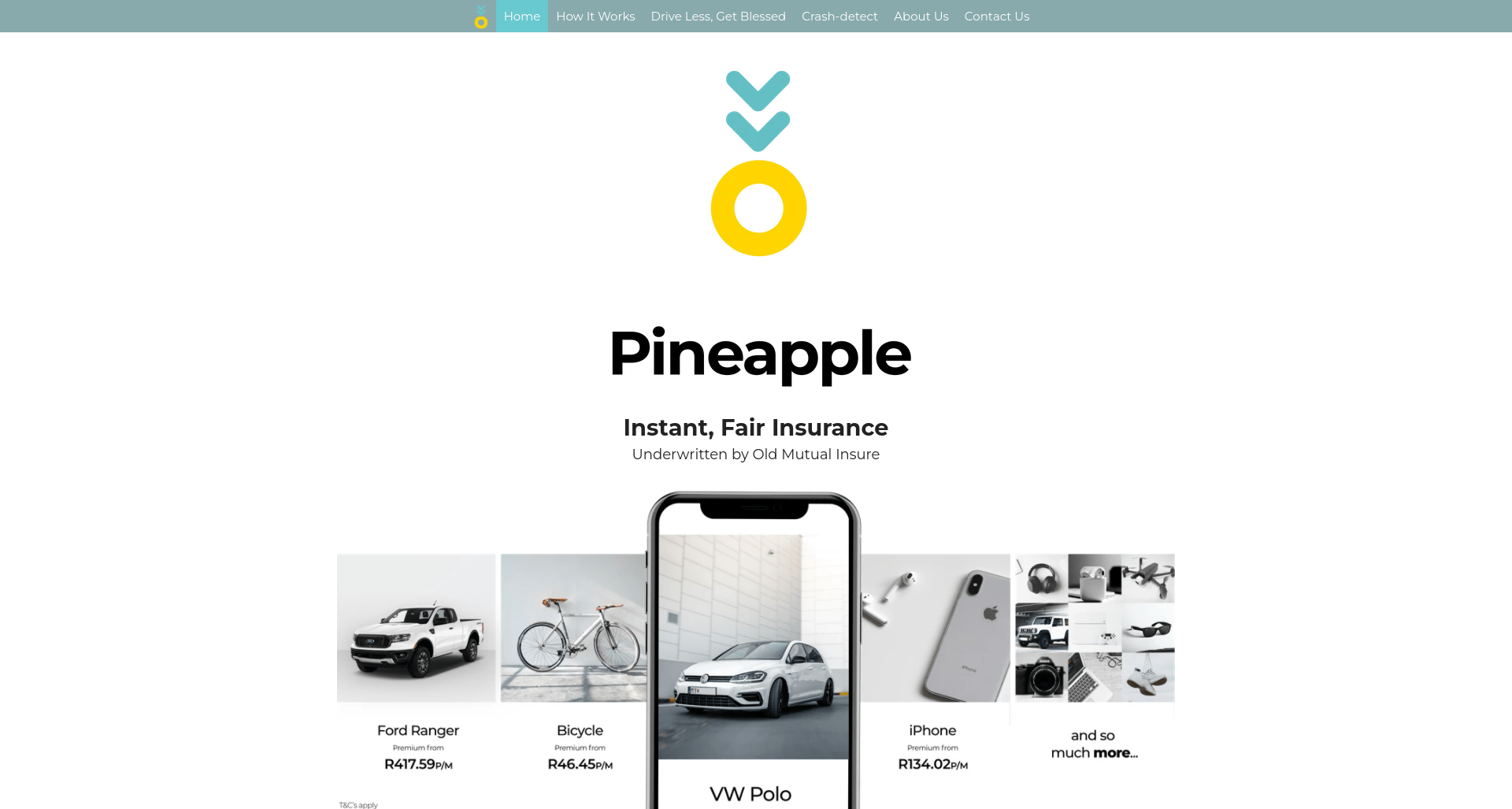
- Pineapple
Pineapple was started in 2017.
HQ is in Johannesburg, which is in South Africa.
Size: 1 to 10
Marnus van Heerden, Matthew Elan Smith, and Ndabenhle Junior Ngulube came up with the idea.
Pineapple is a new company in South Africa that works on financial technology. The insurance company is quick and fair. Pineapple’s app was made to make getting insurance faster and easier. You have to take a picture of the item you want to insure, and the app’s artificial intelligence will recognize it and get you covered. With easy ways to save money, like a button to turn off insurance, it’s great for people who aren’t sure what to insure and what not to.
Marnus van Heerden, Matthew Elan Smith, and Ndabenhle Junior Ngulube started the insurance company in 2017. Pineapple has between one and ten employees right now, but it has had eight investors over five funding rounds, raising $9 million. The main office is in Johannesburg, which is in South Africa.

2. Omnisient Consumer Collaborative Intelligence
Started: 2019
HQ is in Cape Town, which is in South Africa.
Size: 11 to 50
Founders: Anton Grutzmacher and Jon Jacobson
This year, keep an eye on the South African tech startup Omnisient Collaborative Consumer Intelligence. Omnisient, also known as Omnisient Collaborative Consumer Intelligence, is a B2B data platform that lets businesses get deep insights from their data. This makes it possible for companies to reach more people without violating their privacy. Omniscient lets companies do this by working together with other companies in the same industry or even between different parts of the same company.
Anton Grutzmacher and Jon Jacobson started Omnisient in 2019. Since then, they have raised three rounds of funding: the first in March 2020, the second and the third in July 2021. The total budget is $1.3M, which comes from nine investors. The company’s headquarters are in Cape Town, South Africa, and between eleven and fifty people are working there.
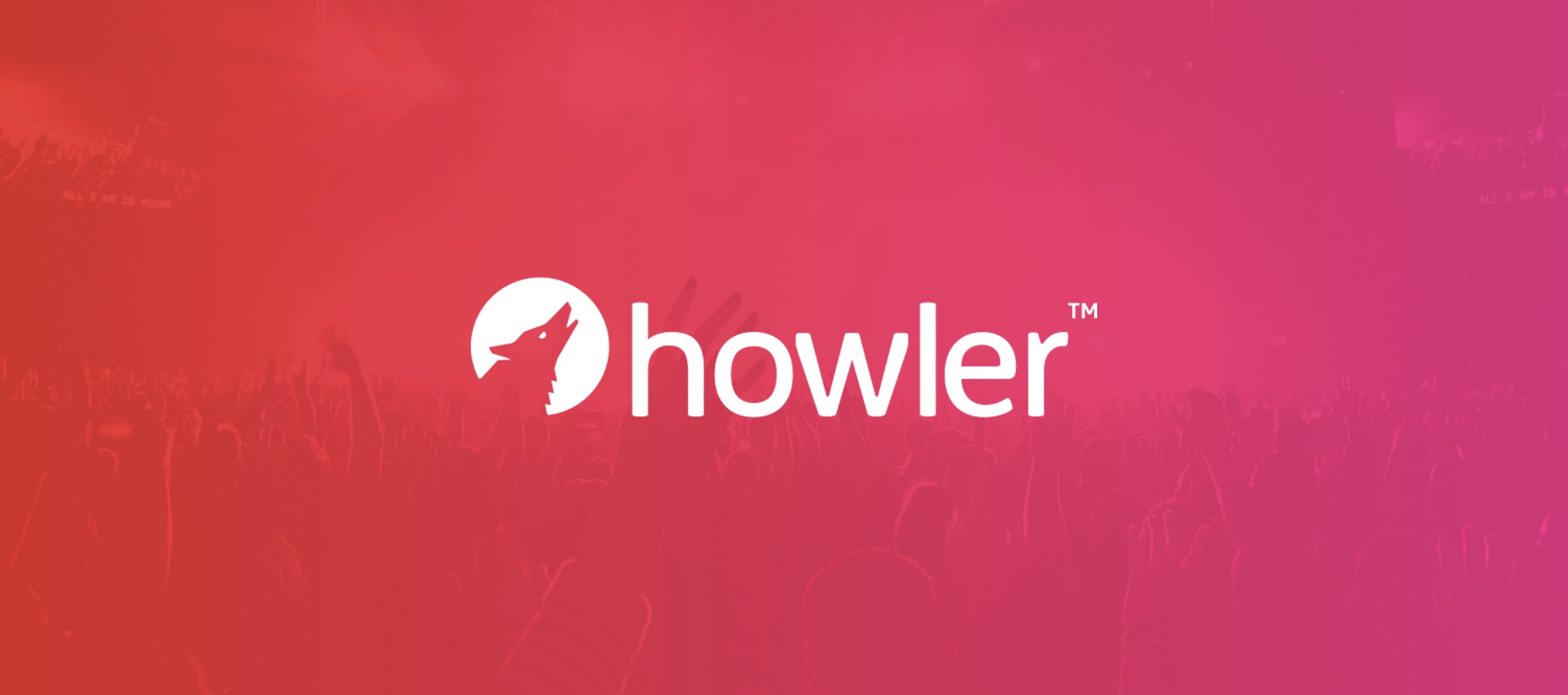
3. Howler
Howler was started in 2016.
HQ is in Johannesburg, which is in South Africa.
From 51 to 100
Founder: Stephen Cuzen.
Howler is a South African startup company to watch in 2022. It works in the events business and uses technology to provide a platform for organizing. The platform gives its customers a lot less stress and more control over the event they are trying to run. In addition, the site helps users be more efficient at planning an event, from planning to promoting to running the event.
Stephen Cuzen started Howler in 2016, and it is now a startup that employs between 51 and 100 people. The company’s headquarters are in Johannesburg, South Africa. Since 2016, Howler has gone through two funding rounds. The first one was in May 2017, and the second was in February 2020.
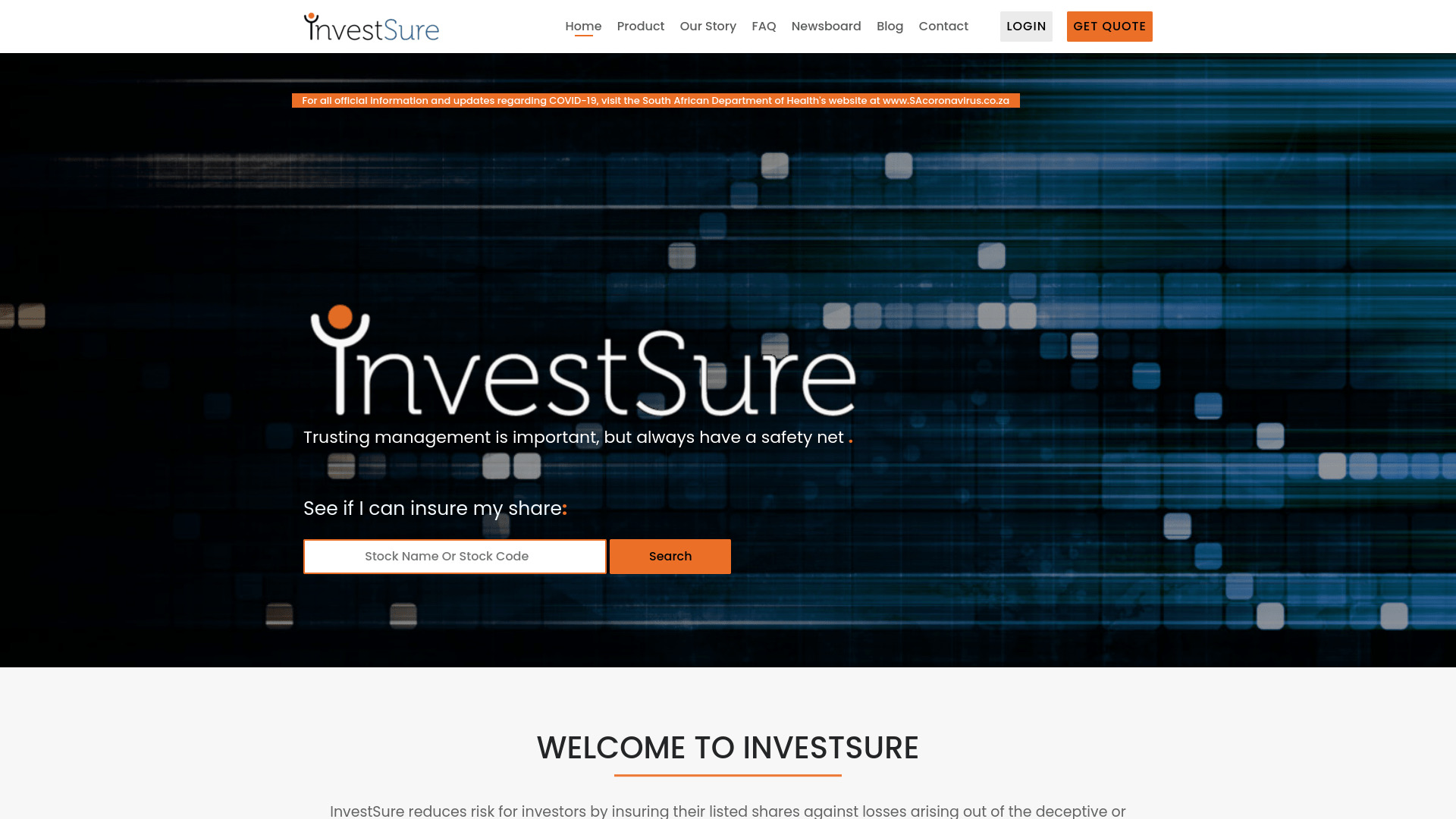
4. Investsure
Investsure was started in 2017
HQ is in Johannesburg, which is in South Africa.
Size: 1 to 10
Ignatious Nkwinika, Mbulelo Mpofana, and Shane Curran were the founders.
The South African fintech company Investsure is the next new company to watch in 2022. The financial technology startup is working on ways to make investing safer for people. For example, customers of Investsure can get insurance against losses on their listed investments. This can make financing more fun by taking away the worry. So, partner investment platforms will make more money, and management won’t be able to act against the interests of investors.
The company was started by Ignatious Nkwinika, Mbulelo Mpofana, and Shane Curran in 2017. It has between one and ten employees at the moment. The main office is in Johannesburg, South Africa, which is also the country’s name for its capital. Investsure was able to get $761,500 from four investors throughout three funding rounds.
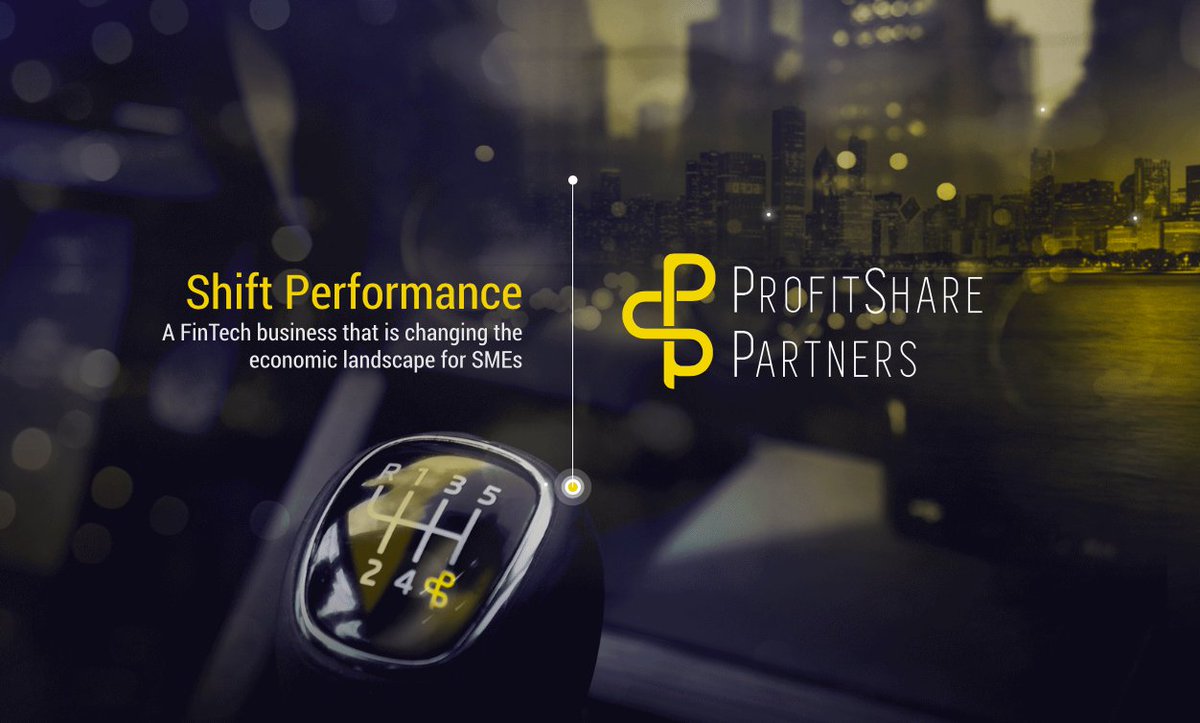
5. ProfitShare Partners
Started: 2017
HQ is in Johannesburg, which is in South Africa.
Size: 1 to 10
Founder: Andrew Maren
This year, you should also watch the South African financial services startup ProfitShare Partners. ProfitShare Partners works with technology to help small and medium-sized businesses. ProfitShare Partners can help small and medium-sized enterprises (SMEs) finish orders and contracts to improve performance and encourage growth with this technology. The fintech startup will send the customer a quote after filling out a simple online form. This makes it easy for them to get money quickly.
Andrew Maren started ProfitShare Partners in 2017. It now has between one and ten employees, and its main office is in Johannesburg, South Africa. Between November 2019 and July 2020, the startup raised ZAR125M from two investors through two funding rounds.
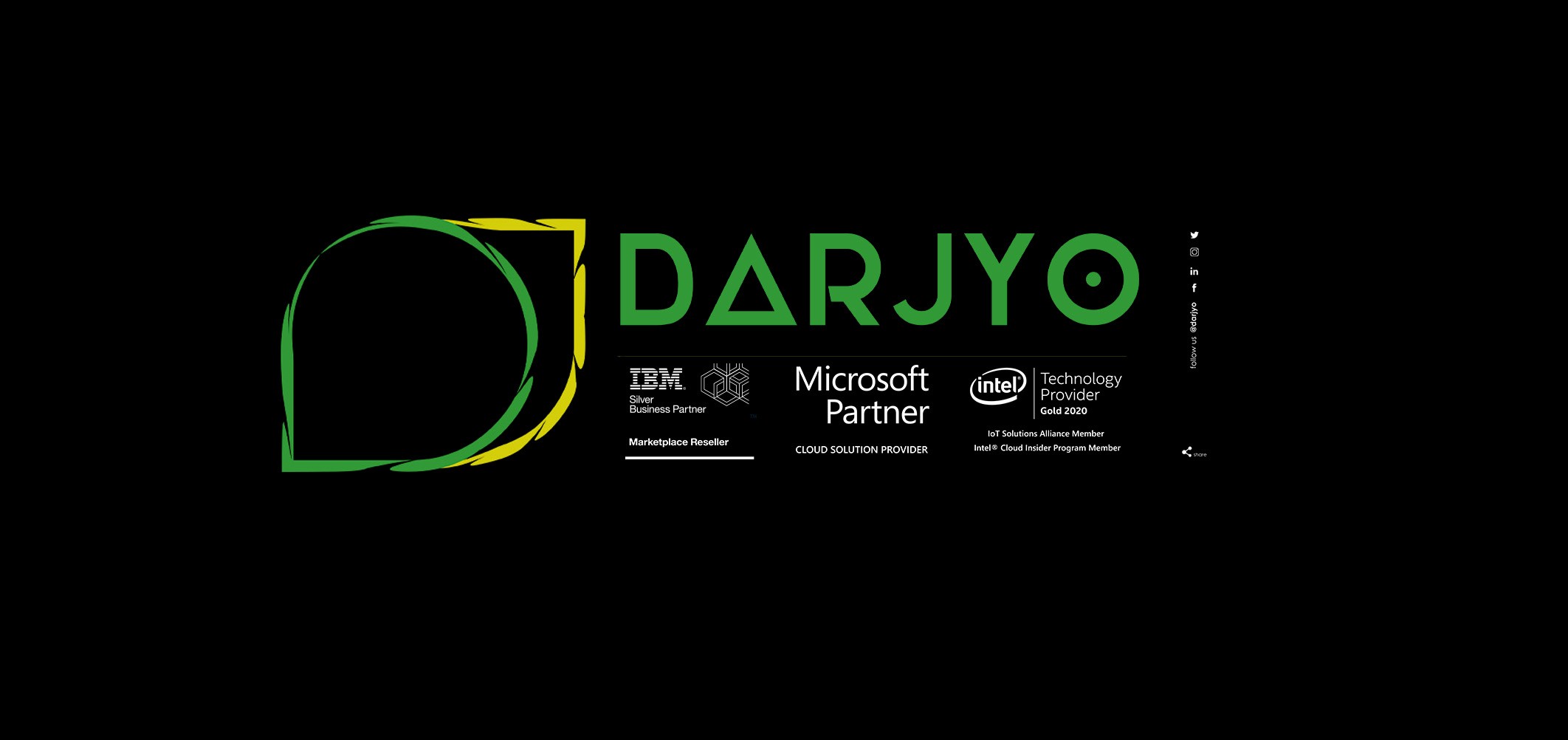
6. DARJYO
DARJYO was started in 2019.
HQ is in Durban, which is in South Africa.
Size: 1 to 10
Founders: Darshani Persadh and Jyothika Persadh.
DARJYO is a software and artificial intelligence company based in South Africa. But the company also works in green technology, big data, cyber security, and quantum computing. The company’s goal is to turn everything into data that can be measured and used to learn. To help the South African economy grow, DARJYO helps businesses find the right technology for their needs.
Darshani Persadh and Jyothika Persadh began DARJYO in 2019. The company has between one and ten employees, and its main office is in Durban, South Africa.

7. Zaio
Zaio was started in 2018.
HQ is in Cape Town, which is in South Africa.
Size: 11 to 50
Akhil Boddu and Mahomed Asif Yousuf Hassam are the founders.
This year, you should also watch the South African edtech startup Zaio. It is an online platform for learning how to code, even for people who have never done it before. The new business offers different ways to learn, depending on what you want to do in the end, like improve your career or get a well-paid tech job. The learning is flexible because you can go at your own pace and get help from a tutor. Once users have finished a course, they can get a certificate to show that they have done so.
The educational technology company was started by Akhil Boddu and Mahomed Asif Yousuf Hassam in 2018. It now has between eleven and fifty employees. The main office is in Cape Town, South Africa, which is also the company’s country. Zaio, also called Zaio Technology, has raised $70,000 from two investors in two funding rounds. The first round of funding was in June 2019, and the second was in August 2020.
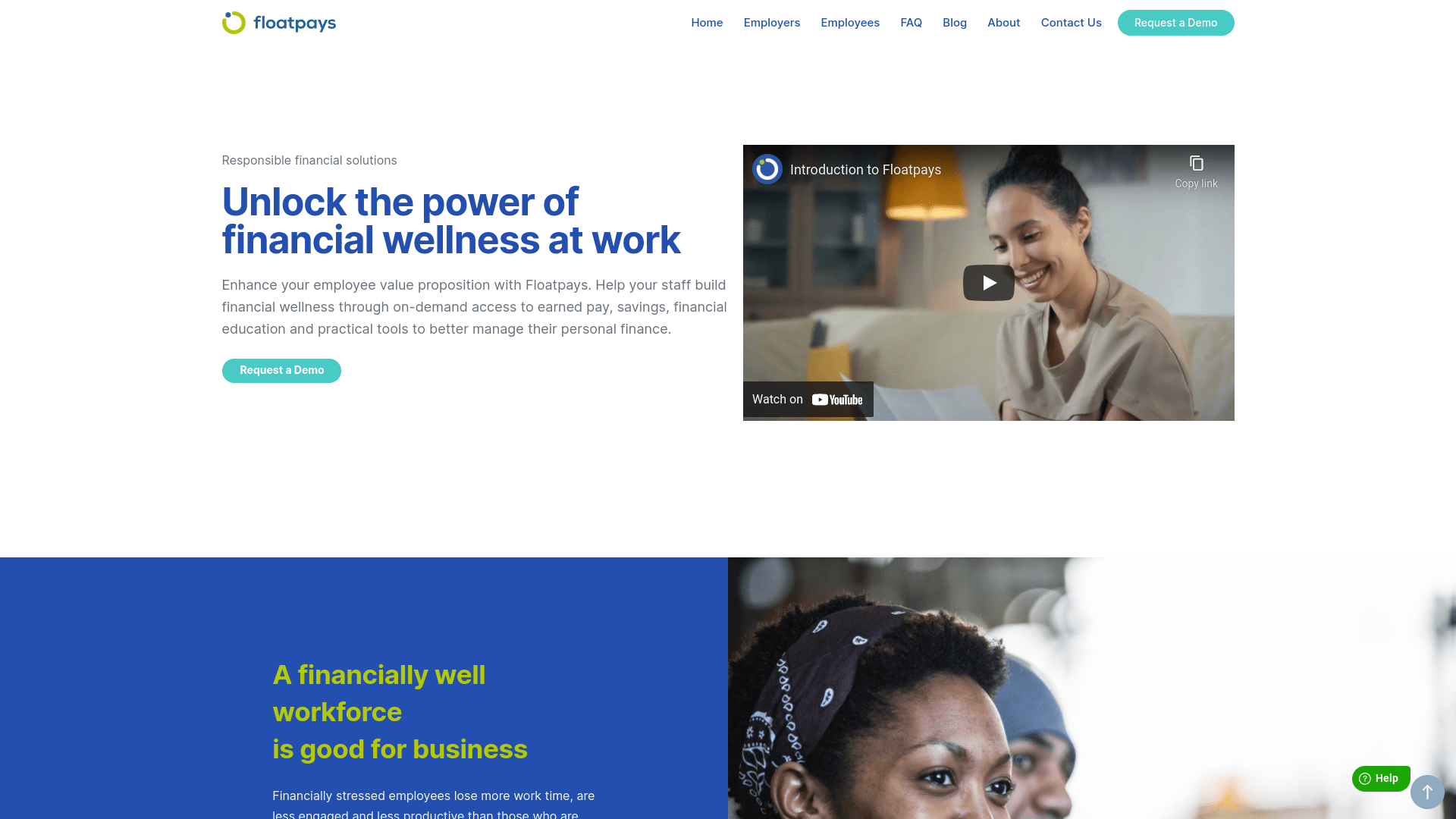
8. FloatPays
FloatPays started in 2019
HQ is in Johannesburg, which is in South Africa.
Size: 1 to 10
Founder: Simon Ward.
In 2022, FloatPays will be the next South African company to watch. It is a fintech startup that works in the education, human resources, and training sectors and offers financial services. FloatPays works with businesses to help their employees manage their finances. Some of the services they offer are training, learning about money, and saving money linked to their paychecks. When a company invests in FloatPays, it invests in its employees and, by extension, in the company itself. When money worries are taken care of, health and productivity can improve.
Simon Ward started the fintech startup in 2019, and it has between one and ten employees at the moment. The main office is in Johannesburg, South Africa, which is the country where the company is based. The company has raised a total of $5.1M so far. This was done with the help of 15 investors in three funding rounds.
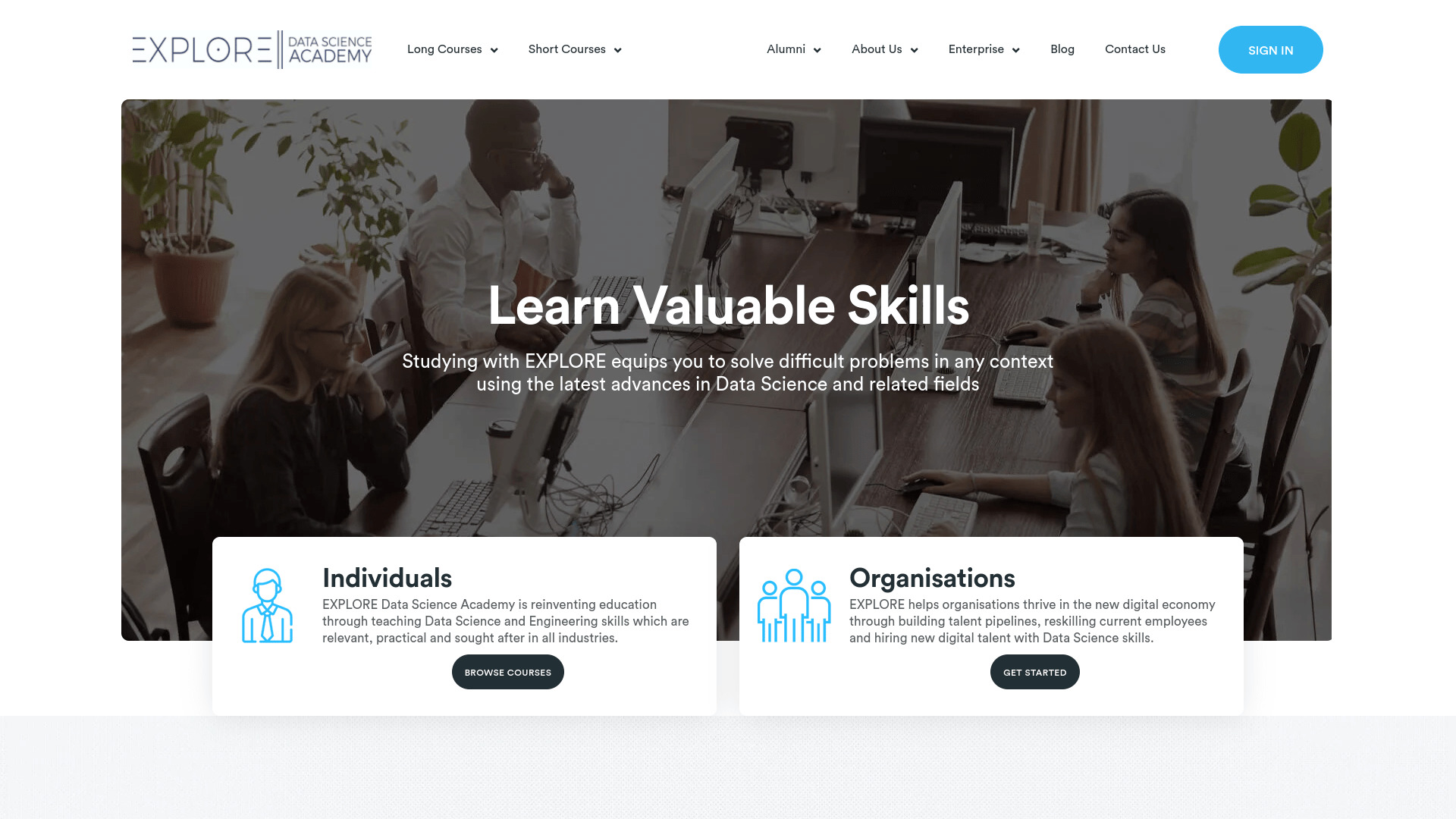
9. Explore Data Science Academy
Explore Data Science Academy was started in 2017.
HQ is in Cape Town, which is in South Africa.
Size: 11 to 50
Founder: Aidan Helmbold, Dave Strugnell, and Shaun Dippnall
Another new business from South Africa is Explore Data Science Academy. It works in education, artificial intelligence, software, analytics, and information technology to provide edutech. Explore Data Science Academy teaches its clients necessary skills in big data, machine learning, data science, and engineering to make them more marketable to employers. Scientists with experience worldwide created the learning programs, and they are often updated to keep up with the data industries, which are constantly changing.
Aidan Helmbold, Dave Strugnell, and Shaun Dippnall started the company in 2017. Since then, it has grown to have between eleven and fifty people working for it. The main office is in Cape Town, South Africa, which is also the company’s country. In September 2017, ZAR50M was raised in one round of funding.
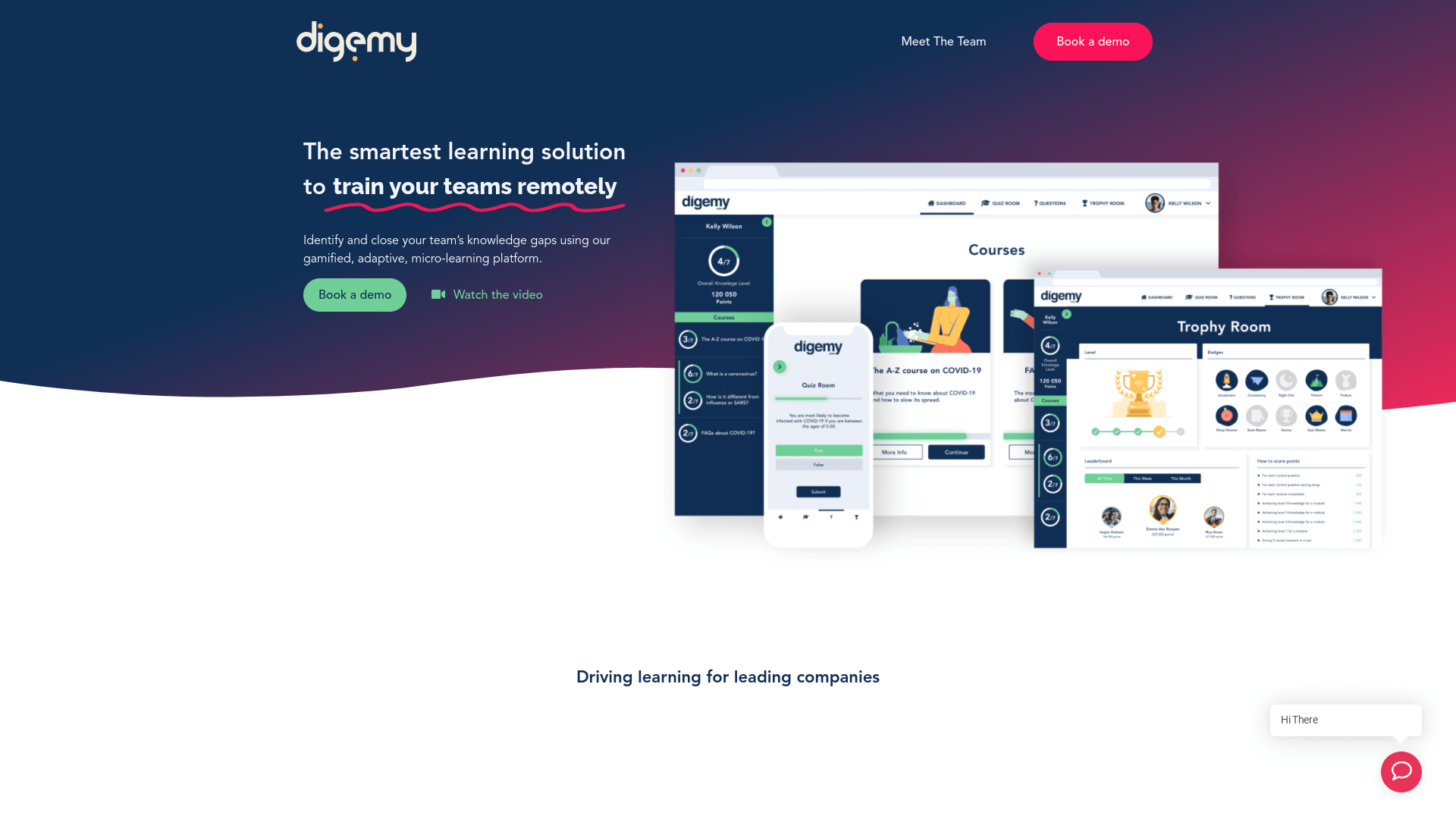
10. Digemy
Started: 2017
HQ is in Cape Town, which is in South Africa.
Size: 1 to 10
Founder: Kobus Louw
Digemy, based in Cape Town, is the next South African startup to keep an eye on this year. This is a company in the edutech industry that works with training providers. Digemy helps these training providers turn their in-person workshops into successful digital seminars that can be accessed anywhere. Unfortunately, it can be hard to make an educational learning platform because people tend to pay less attention online than in a classroom. But Digemy is working to change this by talking to experts in the field, doing research, animating, illustrating, and making videos of content to make personalized learning.
Digemy was started by Kobus Louw in 2017. Its main office is in Cape Town, South Africa. Between one and ten people work for the company, and so far, only one person has put money into it. $68.5K was raised through two funding rounds in January 2017 and September 2019.
edited and proofread by nikita sharma




